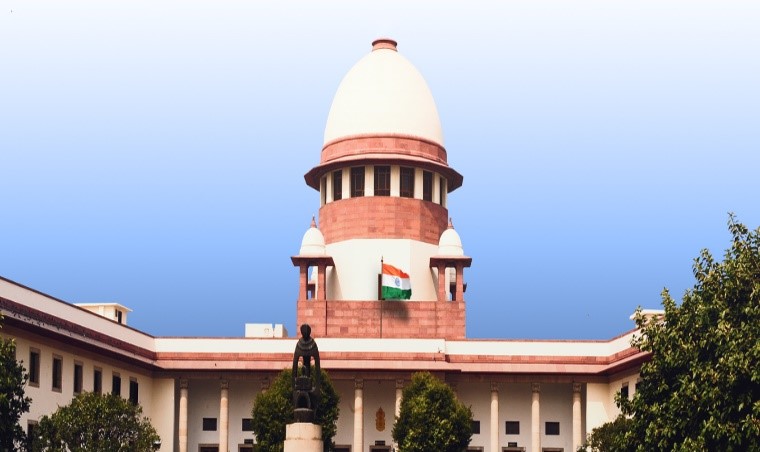Supreme Court Ruling on Socialism and Secularism
Syllabus:
GS – 2 – Preamble , Judicial activism , Socialism, Secularism
Focus :
The article delves into the historical evolution of the Preamble of the Indian Constitution, focusing on the addition of “socialist” and “secular” during the 42nd Amendment, the Supreme Court’s interpretation in key judgments, and the societal implications of the current ruling. It emphasizes the balance between constitutional adaptability and the preservation of foundational values.
Historical Context of the Preamble
- The original Preamble described India as a sovereign, democratic, republic, omitting “socialist” and “secular.”
- Constituent Assembly’s Perspective:
- Avoided “socialist” to allow future generations to decide on economic policies based on the context.
- Indian secularism was inherently embedded in the Constitution through provisions ensuring religious freedom, non-discrimination, and reform in religious practices.
- It differed from Western secularism, which mandates a strict separation of religion and state.
Judicial Interpretations Over Time
- Berubari Union Case (1960):
- Supreme Court ruled the Preamble was not a part of the Constitution.
- It had no substantive power and only provided a guiding philosophy.
- Kesavananda Bharati Case (1973):
- Overturned the Berubari judgment.
- Recognized the Preamble as an integral part of the Constitution.
- Introduced the basic structure doctrine, asserting that certain features of the Constitution, including the Preamble’s principles, cannot be amended.
- 42nd Amendment (1976):
- During the Emergency, the terms “socialist”, “secular”, and “integrity” were added.
- Aimed to reflect the ideological shift towards state-led development and religious neutrality.
The Recent Supreme Court Case
- Petitioners’ Argument:
- Filed by Subramanian Swamy and Ashwini Upadhyay, the case contested the inclusion of “socialist” and “secular,” claiming they were imposed during the Emergency without public consent.
- Suggested these terms were ideologically restrictive and should not have been added.
- Court’s Ruling:
- Rejected the plea, reaffirming that “socialist” and “secular” are integral to the Constitution’s basic structure.
- Stated the Constitution is a “living document” capable of adaptation through amendments.
- Declared Parliament has the power to amend the Preamble as long as it does not alter the Constitution’s basic framework.
Understanding Socialism and Secularism in the Indian Context
Socialism:
- Defined as a welfare-oriented approach aiming at equitable economic growth.
- Post-Independence Era:
- Focused on state-led industrialisation and centralised planning.
- Introduction of public sector industries and nationalisation of key sectors.
- Post-1991 Economic Reforms:
- Shifted towards a market-oriented economy while retaining welfare policies like MGNREGA and subsidised food grains.
- Balances private enterprise growth with state intervention for poverty alleviation.
Secularism:
- Indian secularism emphasizes equal treatment of all religions while enabling state intervention for social reform.
- Examples:
- Legislation against untouchability, child marriage, and dowry.
- State regulation of temple finances and social welfare initiatives.
Socio-Economic Implications of the Ruling
- Ensures inclusive growth through welfare programs and subsidies.
- Balances economic liberalisation with policies addressing income inequality.
- Strengthens unity in diversity by upholding religious equality and social harmony.
- Protects minority rights and fosters communal balance amidst rising societal challenges.
Criticisms of the Terms’ Inclusion
- Critics argue these terms were added during the Emergency without public debate.
- View “socialist” as potentially limiting free-market policies.
- Court’s Rebuttal:
- Asserts that the Constitution evolves with societal needs.
- “Socialism” and “secularism” align with India’s constitutional goals of equality and justice.
Broader Significance
- Constitutional Flexibility: Affirms that the Preamble is amendable but must adhere to the basic structure doctrine.
- Guiding Framework: Provides a roadmap for inclusive policy-making and societal development.
- Reflection of Indian Values: Embodies the principles of pluralism, economic justice, and democratic governance.
Conclusion
- The Supreme Court’s reaffirmation of “socialist” and “secular” as part of the Constitution’s basic structure highlights their enduring relevance.
- While socialism ensures a welfare-oriented approach to address inequality, secularism protects India’s pluralistic fabric.
- This balance strengthens democratic values, fosters economic inclusivity, and ensures societal harmony amidst evolving challenges
Associated Article
https://universalinstitutions.com/preamble/
Mains UPSC Question GS 2
Discuss the evolution of the Preamble of the Indian Constitution, with particular reference to the inclusion of the terms ‘socialist’ and ‘secular.’ Evaluate the significance of these terms in light of recent Supreme Court rulings and their relevance to Indian society.”.(250 words).





